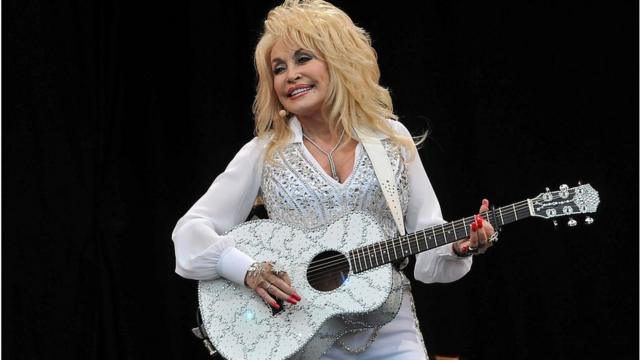Dolly Parton’s Illustrious Career and the Evolution of Love in Her Music
Dolly Parton is an iconic figure in country music who has been entertaining audiences for over 50 years. Throughout her decades-long career, she has crafted hundreds of songs exploring various themes and topics. However, one theme that has remained a constant focus is love. Looking back at Dolly’s extensive catalog of love songs provides insight into her own personal journey and maturation when it comes to relationships and perspectives on love over the years.

Early in her career in the late 1960s and early 1970s, Dolly’s love songs captured the innocence and giddiness of youthful romance. Songs like “Dumb Blonde” (1967) and “Joshua” (1971) portrayed love as playful and lighthearted. “Dumb Blonde” paints the picture of a bubbly young woman falling for a handsome man, reveling in the new feelings of attraction and infatuation.
The lyrics describe her wide-eyed excitement at having caught “Mr. Right’s eye” and not being able to contain her smile. Similarly, “Joshua” tells the story of a teenage girl’s crush, swooning over her classmate Joshua and daydreaming about their future together, complete with picket fences and 2.5 children. These early songs reflected Dolly’s own experiences as a young woman just starting to explore relationships and highlighted love’s butterflies and blushing beginnings.

As Dolly gained more life experience in her personal and professional relationships in the mid-1970s, her love songs began tackling more complex emotions. 1974’s “I Will Always Love You” is often misinterpreted as a romantic ballad, but Dolly has stated it was actually written as a farewell to her mentor and former partner Porter Wagoner as she branched out on her own. The lyrics express letting go of a love in order to find freedom and happiness, showcasing Dolly’s dawning comprehension of love’s bittersweet facets. That same year, “Jolene” explored another complicated aspect – jealousy and fear of loss of love. The narrator pleads with the beautiful Jolene not to steal her man, her “heart’s desire.” This song demonstrated Dolly expanding her songwriting beyond sunny depictions of new love to grapple with its challenges.
By the late 1970s, Dolly had experienced the joys and difficulties of several relationships. Her music began celebrating the comfort and resilience of long-lasting love. 1977’s “The Seeker” portrays a couple growing old together after withstanding life’s storms. That same year, she released her popular duet “You’re the Only One” with Mel Tillis, depicting two soulmates pledging their commitment despite outside doubts. Most famously, her 1977 hit “Here You Come Again” with Barry Mann looks back fondly on a romance that withstood the test of time, with its imagery of growing up together side by side. These songs signaled Dolly’s new appreciation for the depth and endurance of love that has weathered life’s passages.

In the 1980s, as Dolly was married with children, her love songs took on a maternal warmth. 1980’s “9 to 5” is technically a work anthem, but its message of finding fulfillment through friendship resonated deeply. That same year, “But You Know I Love You” is a lullaby sung from mother to child, conveying unconditional nurturing love. Dolly also covered songs from other artists that captured familial love, like her 1983 version of Karen Dalton’s “The Way It Used To Be.” As Dolly settled into family life, her music expressed the all-encompassing love found in raising children.
By the 1990s, Dolly’s children were grown, and she gained new perspective on love in its quieter later stages. Songs like 1995’s “Do I Ever Cross Your Mind” portrayed a mature, intimate relationship where deep understanding has replaced fiery passion but commitment remains. That same year, “Together You and I” with Ricky Van Shelton looked back nostalgically on a long romance, appreciating what they had built together. As she entered her sixth decade, Dolly’s love songs honored love’s ability to endure and deepen over time.
In the new millennium, Dolly has continued crafting love songs that resonate across generations. Her 2016 hit “You Matter to Me” with Jason Derulo advocates self-love and appreciation. Meanwhile, songs like 2017’s “Love Is Like a Butterfly” celebrate love’s beauty and inspire hope that it can be reclaimed after loss. Dolly’s 2019 album “Heartstrings” featured fresh interpretations of many of her past love songs, showing how their messages remain timeless. As she heads toward 50 years in the music industry, Dolly proves love remains an endless well of inspiration for her artistry.
A constant through all eras of Dolly’s songwriting has been her inimitable style. With its blend of country, pop, and bluegrass influences, her music adds layers of warmth, authenticity and visual imagery. Whether portraying the giddy beginnings, turbulent challenges, or enduring comforts of love, Dolly excels at painting vivid pictures through descriptive lyrics and her rich vocal delivery. Her ability to make complex emotions relatable has resonated with audiences globally across gender and generation lines.
Examining the arc of Dolly Parton’s love songs serves as a window into her personal journey and evolution. From wide-eyed innocence to hard-won wisdom, her music has chronicled her deepening understanding of love in all its complexity over decades. While always returning to love as a central theme, Dolly’s nuanced depictions have matured along with her. In the process, she has crafted an iconic body of work celebrating universal human experiences and cementing her status as a legend. Dolly’s illustrious career stands as a testament to not only her unparalleled talents, but also love’s ability to inspire art and endure across a lifetime.
News
“Nunca había visto a un hombre llorando en mi estudio”: la reacción que provocó la nueva balada de Shakira sobre Piqué
La cantante colombiana compuso una canción distinta a todas las que había escrito sobre su ruptura con el futbolista Piqué. Un trabajador de su disquera rompió en llanto al escucharla. “Nunca había visto a un hombre llorando en mi estudio”:…
El Gesto de Shakira en su Presentación Por La Triste Noticia, Karol G y Feid Celebran con Gran beso
Shakira y Karol G: Dos Caras de la Farándula en la Final de la Copa América. El reciente evento de la Copa América no solo destacó el fútbol, sino que también reveló dos facetas muy distintas de la farándula. Shakira…
ENTRE LÁGRIMAS SHAKIRA CONFIRMA, NOVIA de PIQUÉ ESTÁ EMBARAZADA! ÚLTIMA HORA, TRISTE NOTICIA HOY!
El Escándalo Continúa: ¿Está Clara Chía, la Novia de Piqué, Embarazada? ¡Bienvenidos, seguidores de Tele Farándula! Hoy traemos las últimas noticias sobre el escándalo en torno a la separación de Shakira y Gerard Piqué, que sigue capturando la atención del…
“Mamá tengo ALGO que Contarte” ¡Milan CUENTA SECRETO de Piqué a Shakira y REVIENTA a Clara Chía!
La Revelación de Milán: ¿Cómo los Hijos de Shakira y Piqué Desenmascararon la Infidelidad? La separación de Shakira y Gerard Piqué, luego de una década juntos, ha mantenido la atención del público en los detalles de su ruptura. Recientemente, la…
Karol G Se Confiesa: Por Fin habla de Feid, Revela que se Equivocó con Anuel y no lo hará con Feid
Carol G Habla Sobre Su Relación con Feid y Cómo Maneja su Vida Privada. En el mundo de las celebridades, mantener una relación privada puede ser un desafío monumental, especialmente cuando se está bajo el escrutinio público constante. Carol G,…
Lewis Envía Mensaje a Shakira y Así le Respondió Ella, Su Nuevo Carro es por Lewis Hamilton
Shakira y Lewis Hamilton: ¿Romance en el Aire o Simples Coincidencias? En los últimos meses, Shakira ha estado en el centro de atención no solo por su música y su vida personal, sino también por una serie de interacciones con…
End of content
No more pages to load











